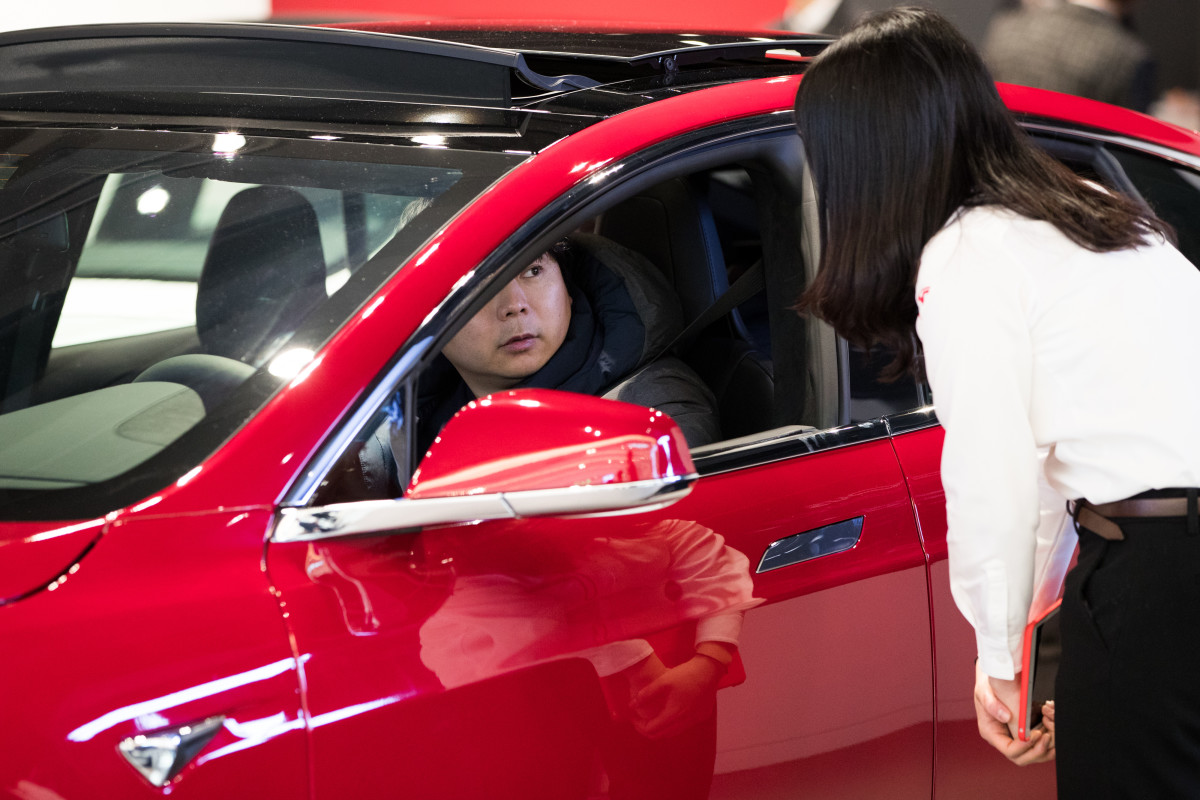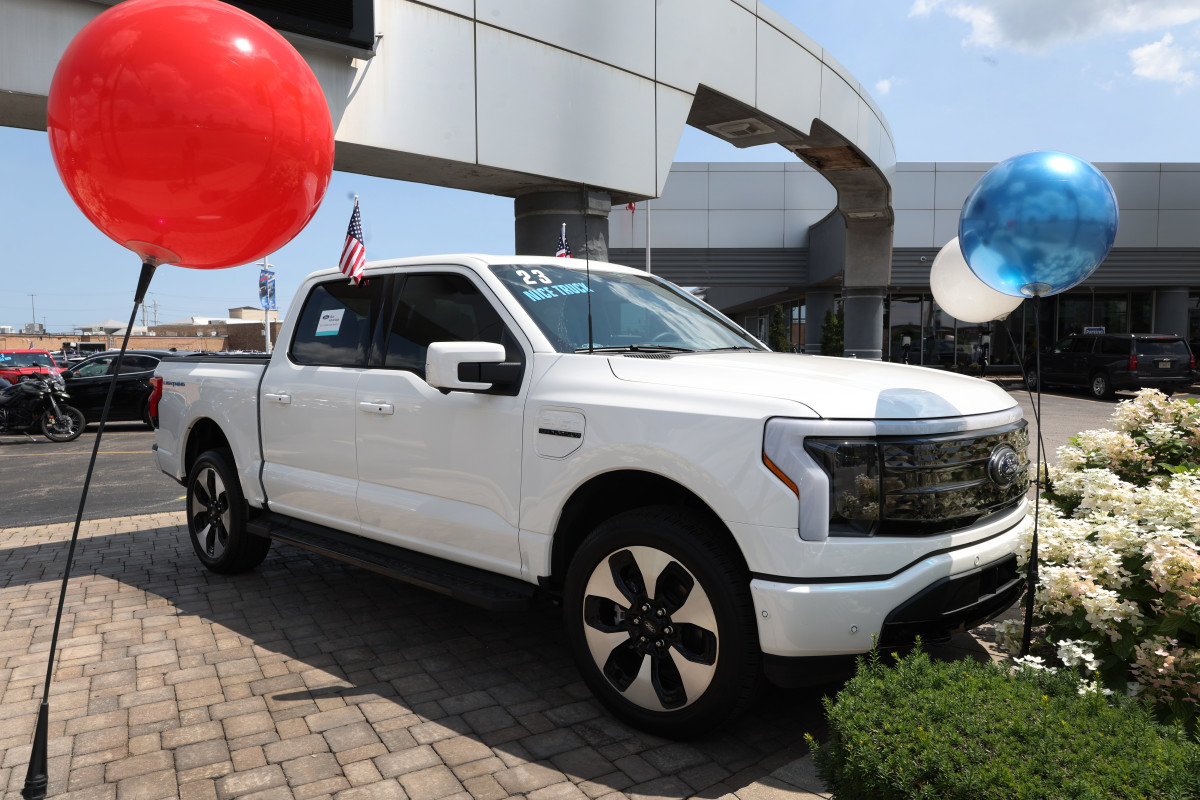
As the automotive industry slowly shifts in the wake of an all-electric future, automakers are working to find out what kind of cars would work the best with electric powertrains and would attract the most amount of buyers.
While electric mainstays like Tesla (TSLA) -) and established manufacturers like Honda (HMC) -) and Volvo (VLVOF) -) put their chips towards manufacturing popular, best-selling segments like compact sedans and crossover SUVs, other manufacturers have bolder plans for their electric dreams.
Related: CEO of major Tesla rival isn't concerned about the coming Cyber Truck
American automakers like Ford (F) -), General Motors (GM) -) and newcomer Rivian (RIVN) -) are notably trying their hands at electrifying an all-American transportation icon: the pickup truck. However, new research shows that their enthusiasm for electrifying their most profitable segment has a major drawback.
The truth is built tough

As per a report by Heatmap, data from a recent survey by automotive market analytics firm AutoPacific reveals that out of all segments, buyers looking for pickup trucks are the least likely to buy electric. According to AutoPacific data, only 12% of full-sized (e.g. Ram 1500, Ford F-150) and 8% of mid-sized (e.g. Toyota Tacoma, Chevrolet Colorado) truck buyers willing to adopt the plug.
“Pickup truck buyers are typically the most engrained in their roots and opinions when it comes to straying too far from the normal pickup truck DNA,” AutoPacific product and consumer insights analyst Robby DeGraff said. “Demand for ICE (gas/diesel powered) pickups will never fade and it rages on in popularity, but that type of demand isn’t and likely won’t ever be mirrored for EV pickups.”
AutoPacific’s data comes from the latest edition of its Future Attribute Demand Study, where they surveyed over 11,000 drivers across the U.S. who intend to buy a new car within the next three years. The study, which took place over the course of 12 days in July, had an equal sample size of men and women, with participants having an average age of 45 years.
The auto market analytics team found that although charging infrastructure and range woes were reasons why truck buyers stayed away from the EV versions, the price of EVs in general was the top concern of buyers in all the segments.
In comparison to gas powered equivalent models, buyers would have to pay a premium to get off the sweet, sweet nectar of gasoline and on the plug. For example Ford’s F-150 has a base price of around $35,000, while the fully electric F-150 Lightning starts closer to $50,000, with many sitting on dealer lots with sticker prices of around $75,000.
Most of the people surveyed by AutoPacific noted that they ideally would like to pay around $50,000 for an EV, with most buyers comfortable in the $35,000 to $49,000 range.
More Business of EVs:
- A full list of EVs and hybrids that qualify for federal tax credits
- Here’s why EV experts are flaming Joe Biden’s car policy
- The EV industry is facing an unusual new problem
Degraff noted that most EV buyers are generally not interested in buying pickup trucks, rather they are attracted to a more practical kind of car.
“When we look at our most recent batch of data, EV powertrain intenders are much more interested in midsize and compact cars than pickup trucks,” said Degraff. “26% of all polled EV intenders intend to buy a compact car and 21% a midsize car… higher than demand among EV intenders for [SUVs and crossovers] that are compact, midsize, and subcompact, and even in some instances large.”
Another viewpoint to electric pickups

Low interest isn't the only hinderance to EV pickup sales success, however. Data from market research firm Strategic Vision found that buyers of pickup trucks of all sizes heavily skew Republican, with “heavy duty pickup trucks” having the biggest disparity between party lines, where Republicans buy 8 for every single Democrat buyer.
Strategic Vision also found that while Democrats they surveyed tend to want “environmentally-friendly vehicle that is both economical and cool,” Republicans they surveyed want a vehicle that is seen as “powerful, rugged, and prestigious.”
Though electric trucks like the F-150 Lightning and the Rivian R1T are extremely powerful numbers-wise against “real trucks” and the man behind the futuristic and rugged Tesla Cybertruck has pushed antisemitic conspiracies on his social network X, formerly known as Twitter, electric trucks in the eyes of truck buyers are still too far out of reach when it comes to price and too far out of touch in terms of identity and image.
Most notably, former President Trump has made electric cars his boogeyman, lambasting both on his social media network Truth Social and in public appearances. In a September 27 speech at an non-union auto parts facility in Michigan, he falsely touted that an electric shift would cause "40 percent of all U.S. auto jobs" to "disappear" and that "they're going to be building those cars in China and other places."
As the EV market evolves and data shows that a polarized America are sticking to their segments, automakers can learn a lot about the buyers that they desperately trying to convert into going electric.
Action Alerts PLUS offers expert portfolio guidance to help you make informed investing decisions. Sign up now.






